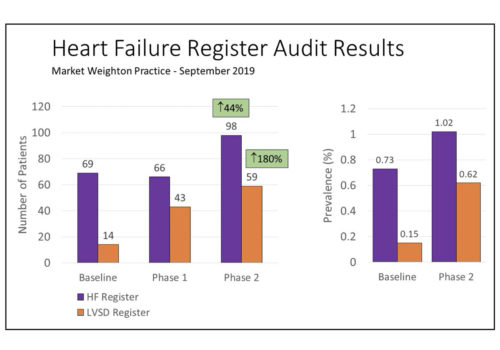There is emerging evidence that heart rate control is an important element in the management of people with heart failure. The major beta-blocker trials have shown improved mortality and reduced hospitalisation when patients with impaired left ventricular (LV) function are managed with optimal doses. In a meta-analysis of these trials, McAlister et al. have shown a correlation between heart rate control and improved outcomes.1 Beta-blockers may have other actions apart from heart rate control; for instance, they may be anti-arrhythmic or have some other mechanisms for their action. Ivabradine, whose only function is heart rate control, has also shown a reduction in hospitalisation for heart failure.2 Heart rate is additionally an indicator of optimal beta-blockade3, and so may be a proxy for optimal medical treatment.






















